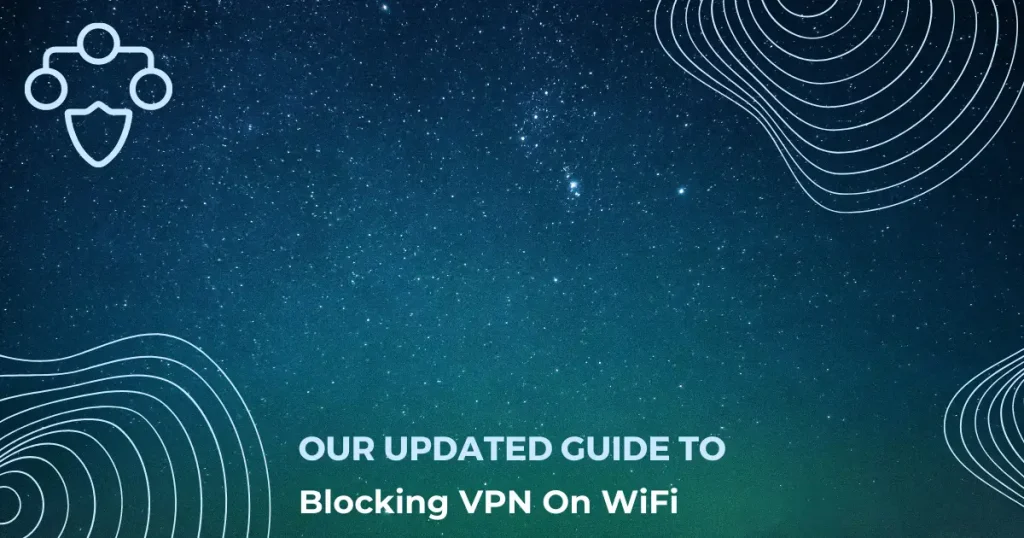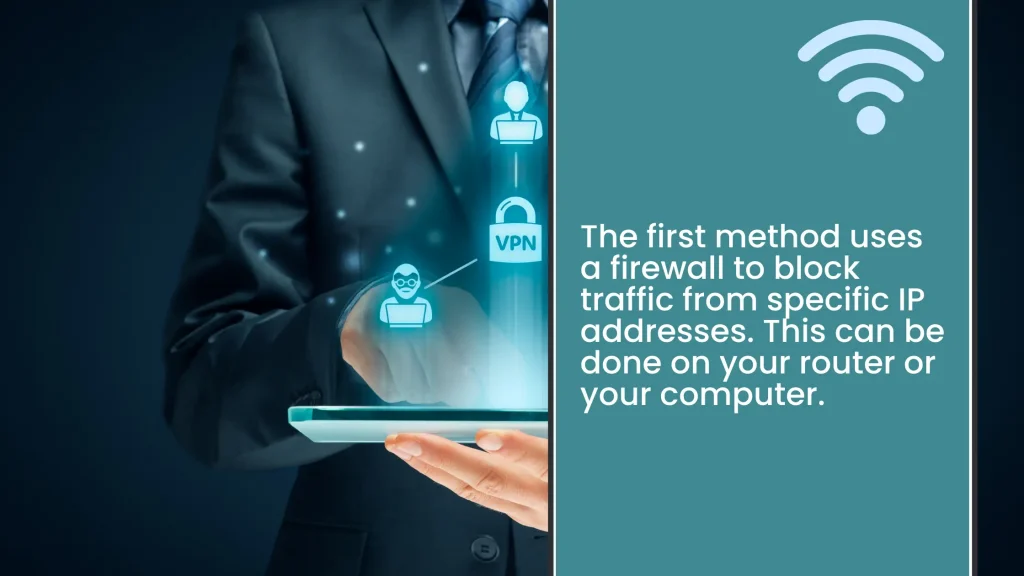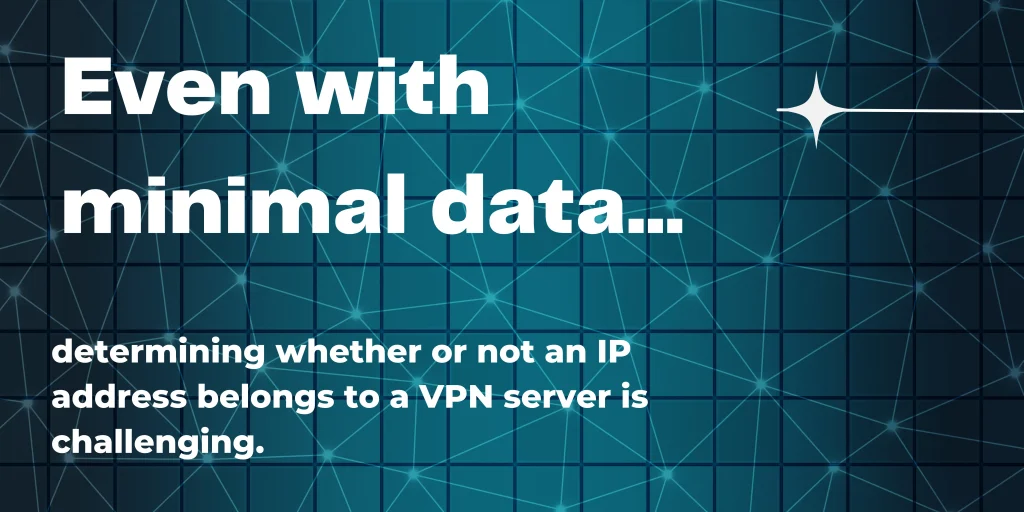
Chris Lawrence is a journalist and chief editor at Wlan Labs. He has been writing about technology for more than ten years. He writes about everything ranging from privacy to open source software. His goal is to educate readers about important topics to help make their lives easier.
What Is A VPN?
A commonly asked question is how to block VPN on WiFi. VPN stands for Virtual Private Network, and it is a way of tunneling traffic through an encrypted connection, making it more secure.
The problem with this method is that some people use the same IP address as their home WiFi to remotely access their work network, which defeats having a VPN. In this article, we will explore three methods of blocking VPNs on your WiFi network.
When you use a virtual private network, better known as a virtual private network (VPN), you get online privacy and anonymity. Using a virtual private network (VPN) makes your internet activity almost undetectable. Most importantly, VPN services provide greater security and encryption than even the most secure WiFi networks.
When using free public WiFi at a coffee shop, hotel lobby, or other public location, you should always utilize a virtual private network (VPN) to protect your online privacy.
To protect your internet activities from hackers, corporations, government agencies, or any other snoops, a virtual private network (VPN) builds a form of a tunnel.
How To Block VPN On WiFi
However, if you’re trying to know how to block VPN on WiFi, a few methods can be used:
The first method uses a firewall to block traffic from specific IP addresses. This can be done on your router or your computer. To do this on your router, you would need to access your router’s settings and add the IP address of the VPN server to a list of blocked devices.
To do this on your computer, you can use a firewall program such as Windows Firewall or ZoneAlarm.
Content blockers are also an option. Specific domains or websites can be blocked with a content blocker. Both your computer and your router can perform this function. NetNanny or Covenant Eyes can be used to achieve this on a PC.
Access your router’s settings and add the domain or website to a list of prohibited sites to accomplish this.
A DNS blocker is the third option we suggest for how to block VPN on wifi. Websites or domains can be blocked by using a DNS blocker, and your PC or router can be used to do this.
You can also use a tool like OpenDNS or Norton ConnectSafe to accomplish this on your computer.
The best way to protect your WiFi network from VPNs is to use a combination of these methods. You can block most VPNs on your network by using a firewall, a content blocker, and a DNS blocker. If you have problems with a specific VPN, you can try using a different method to block it.

Why Should I Block VPN On My WiFi?
There are several reasons why you might want to block VPN traffic on your WiFi network. The first reason is security. You can use a virtual private network (VPN) to get around security measures on your network, like firewalls and content blockers. This can leave your network vulnerable to attack.
Another reason to block VPN traffic is to prevent people from bypassing your location restrictions. For example, if you are using a VPN to watch a movie that is only available in certain countries, you can use a DNS blocker or content blocker to block access to the streaming service from other countries.
Finally, some people use VPNs to hide their activities from their ISP. By blocking VPN traffic on your network, you can prevent people from hiding their activities from their ISP.
How To Detect VPN Use On My Network
There are a few ways to detect if someone uses a VPN on your WiFi network. One way is to look at your network traffic. If you see an influx of traffic from a specific IP address, then you can assume that someone is using a VPN.
Another way to detect VPN use is to check your router’s logs. Most routers keep logs of all the connected devices to your network. By reviewing your router’s logs, you can see which devices have connected and when.
Finally, you can use a VPN detection tool. There are many of these tools available online, and they will scan your network for open VPN connections.

Why Use A VPN Detection Tool?
Even with minimal data, determining whether or not an IP address belongs to a VPN server is challenging. Detection software can classify an IP address within milliseconds using a VPN detection tool and its huge network datasets. Use this to find VPN servers by their IP address quickly.
Anti-fraud, KYC (know your customer) processes, geo-blocking, and anti-spam can benefit from using a VPN detection tool. Intruders may not be able to get into your services and apps if you take this precautionary measure first.
How To Block VPN On Virgin Router
To block VPN on a Virgin router, you will need to access the router’s web interface and navigate to the ‘Firewall’ section. From here, you will need to create a new rule that will block all traffic from IP addresses that are associated with VPN servers. Once you have saved this rule, VPN traffic will be blocked on your Virgin router.
Please note that this may cause problems with some legitimate VPN applications, such as specific security software. It is important to only block VPN traffic on particular IP addresses that are known to be associated with VPN servers.
Different Types Of VPN
Site-to-Site VPN
A type of VPN which allows many users in different places to access each other’s resources is a Site-to-site VPN.
- Intranet-based site-to-site
To put it another way, you’re an employee of a large corporation in London, and you’re now working with colleagues at the Berlin division. Put another way, because of the site-to-site VPN you’re utilizing, your local area networks (LANs) are connected to the same wide area network (WAN). An intranet-based site-to-site VPN like the one depicted above is possible.
- Extranet-based site-to-site
On the other hand, extranet-based connections are utilized when two independent intranets need to be linked but cannot be accessed directly from either side. A good illustration of this would be the collaboration of two distinct businesses.
This type of VPN is typical in large-scale business contexts where secure communication between departments around the globe is critical. However, they are challenging to put into practice since they necessitate expensive specialist equipment. A VPN designed for a specific purpose lacks the flexibility of commercial VPN services.
Remote Access VPN
Have you ever used a personal virtual private network (VPN)? If this is the case, you are already familiar with remote access VPNs, which are currently the most common type of VPN.
Remote access VPNs make connecting to a private network easier by connecting the user to a secure faraway server. The additional encryption would offer a safety net if something were to go wrong.
This is the foundation of commercial VPN services. Using a service like this, you can surf the internet on someone else’s network, keeping your data safe from prying eyes on your local network.
Thus, you can browse the internet anonymously, access content that would otherwise be inaccessible via your regular connection, and protect the data you store on the internet from snoopers and hackers.
Remote access VPNs have the advantages of being simple to set up and simple to use. If you’re new to operating a VPN, you can use this one. It’s suitable for personal use, and it’s safe. There is a chance that it will not meet the needs of huge corporations, though.
How To Bypass VPN Block On WiFi
One way to bypass a VPN block is to use a server that is not on the list of blocked IP addresses. By using a server that is not on the list, you can still connect to the VPN. Another way to bypass a VPN block is to use a different protocol.
If the VPN is blocked by the ISP, you can try connecting through another protocol, such as PPTP or L2TP/IPsec. You may also be able to bypass the VPN block by using a web-based proxy.
A web-based proxy allows you to access the Internet through a server that is not blocked by the ISP. Finally, you can try using a VPN that uses a different port. If the ISP is blocking port 1723, you can
Advantages Of VPN
A VPN, or virtual private network, is a tool that can provide several benefits for users who are looking to protect their online privacy and security.
Here are ten of them:
- Increased privacy and security
- Bypass censorship and geographical restrictions
- Avoid getting hacked while on public WiFi
- Watch videos that are blocked in your country
- Access blocked websites and content
- Keep your data private from ISPs
- Improve your online gaming experience
- Save money on flights by accessing cheaper fares abroad
- Torrent safely and anonymously
- Connect to any server location in the world
Disadvantages of Using a VPN
If you’re considering using a VPN, there are some disadvantages you should be aware of.
Here are ten of them
- You may experience slower internet speeds because your data has to travel further to reach its destination
- Some websites and ISPs can block VPNs
- Some countries block access to VPNs
- VPNs can be used to bypass government censorship and surveillance
- VPNs can log your internet activity, which defeats the purpose of using a VPN in the first place
- Some VPNs have been known to sell user data to third parties
- Free VPNs are available, but they usually have fewer features and slower speeds
- Paid VPNs often have a monthly or yearly fee
- You have to trust the VPN provider not to log your activity or sell your data
- You may have to install additional software to use a VPN
Weigh the pros and cons of using a VPN before deciding if it’s right for you. If you’re concerned about online privacy, a VPN may be suitable. But remember, there are some disadvantages to using a VPN as well.
How To Block VPN On WiFi Conclusion
We hope you found our guide to how to block VPN on WiFi helpful.

